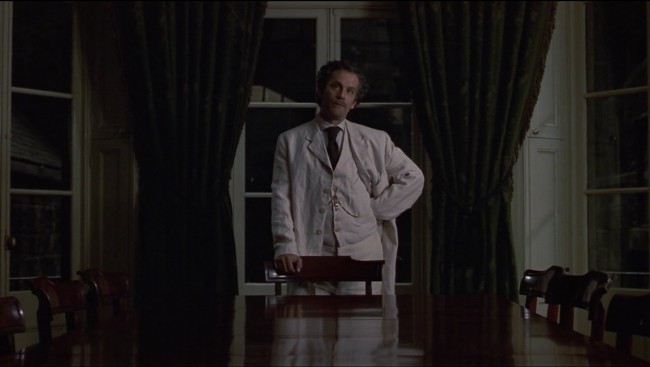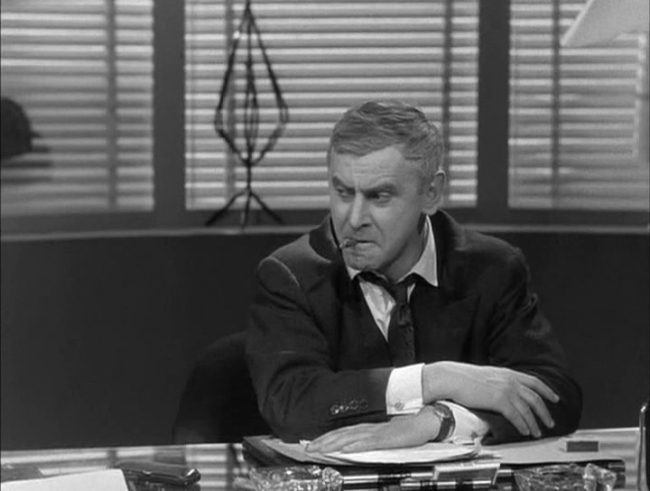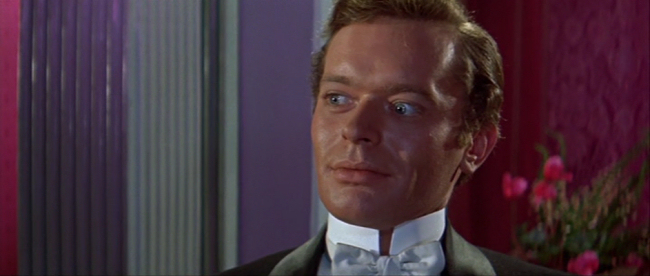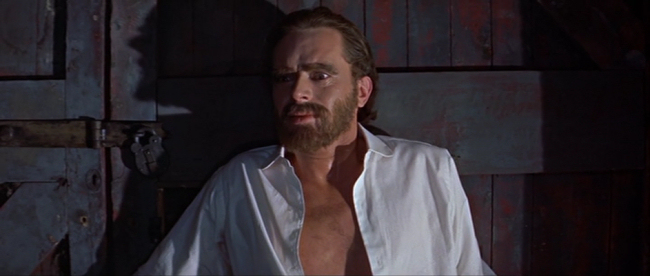
I hardly expected the cruellest adaptation of Dr. Jekyll and Mr. Hyde I've seen thus far to be a 1990 TV movie starring Michael Caine. But it is, simply by going with the premise that Jekyll really is a decent fellow whose life is being ruined by his experiment gone wrong. This is another Jekyll who sees morality as unscientific but unlike the Jekylls in Two Faces of Dr. Jekyll or the 2003 adaptation, the character isn't given this belief so the movie can make a counterargument. Instead, he finds he was right all along but there's no pleasure in being right as the consequences are horrific and sad.

This is underlined by one of the most nightmarish Hydes I've seen. I think Michael Caine is a good actor but not one with a lot of range. Fortunately the makeup here more than makes up for it, his Hyde being this strange trollish creature with an oversized bald head who can barely talk. I really like the transformation sequences, too, where the man's flesh seems to boil from a great internal heat.
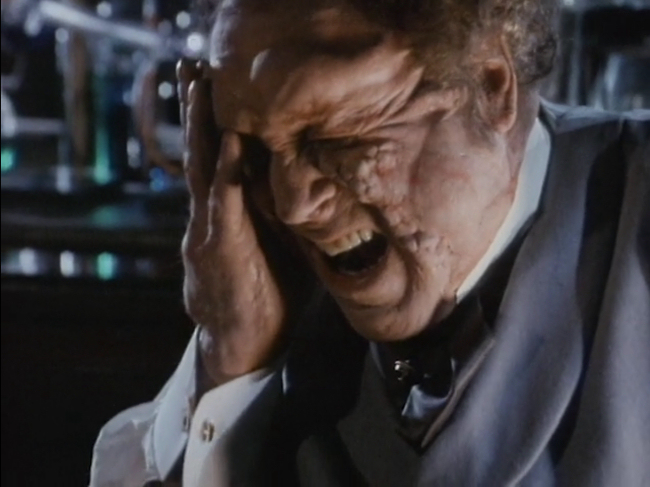
We find this Jekyll a widower, his late wife the daughter of his professional rival, Dr. Lanyon (Joss Ackland). Now Lanyon's other daughter, Sarah (Cheryl Ladd), has her heart set on Jekyll, a fact complicated by the fact that she's already married.

She sure doesn't look period accurate, does she? This is the first shot of her--I couldn't restrain a "Wow." The hair immediately launches a powerful salvo of anachronism. I love how every generation seems to have a completely different idea of what's fair to put into the Victorian aesthetic.

It's Dr. Lanyon in this one who's obsessed with appearances and reputation, an aspect of the plot fleshed out with several supporting society characters giving the story something like the feel of an Oscar Wilde play. There's also a substantial amount of time spent with a tabloid reporter, desperate to catch every hint of sexual scandal so he can blow it up in his paper. In contrast, Jekyll and Sarah embarking on an affair seems a great breath of fresh air. It's more remarkable because it happens after Hyde brutally rapes Sarah and Jekyll confesses to her his secret.

Some more time could have been spent conveying her trauma from the incident--though Ladd's performance can also be interpreted as admirable fortitude--but it is clear that this is a Jekyll with no similarity to Hyde. So her willingness to become his partner as he tries to cure himself of Hyde makes sense.
His initial goals are a little more vague than usual--something about curing madness. When he starts to gain some insight into a possible future in genetic manipulation he becomes disgusted with his own work.

He also has a room at a brothel for Hyde, who, incredibly enough, seems to have behaved himself well enough until a prostitute named Lucy (Kim Thomson) gets the scratches on her back that Miriam Hopkins and Ingrid Bergman got before her in the same role.

The colour scheme for prostitutes in this film is a bold red and white. I love the bug eyed madam played by Miriam Karlin.

She seems to be the prototype for the character played by Glenn Close in Mary Reilly and there's another similar madam in the 2003 movie.

When Lanyon finds out what his daughter is doing with Jekyll he throws her out in the rain, a fact gleefully reported in the papers, his effort to preserve his reputation earning him no sympathy. But, as in the novella, when Hyde goes to Lanyon and transforms in front of him, it seems to inflict a terrible psychological blow to the older man. In this case, it seems to come from the revelation that the cruelty of his own actions, in the interest of preserving social morality, is useless and pales in comparison to a far crueller reality. When Lanyon tells Jekyll only God can help him now, he can only weep when Jekyll replies, "Then why doesn't He?"



